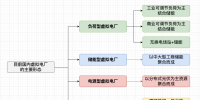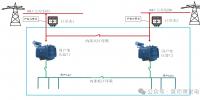印度电网公司以及其余57家服务商参与了试点工程,该项工程涵盖了1400台智能电表。在试点项目的下一阶段中,本地治里地区尚有87,000个家庭需安装智能电表,印度电网为此已做好下一步的投标准备工作。
与此同时,在此领域耕耘数年的IBM等公司终于有机会获得回报。印度IBM公司全球业务服务部副主席兼合伙人Jeby Cherian向印度商业线报透露:“印度实现了从智能星球获益,依靠智能电网输电,从而对大众和经济上产生了影响。”
Cherian说:“在某种意义上,印度没得选择。在印度,由于新技术、新政策以及用户需求的变化,那些长期屹立不倒的电力商业模式已经过时了。”
尽管印度已经发生了重要变革,这些变革同样意味着为智能电网投资的短期回收创造机会。由于传输损耗和非法用电所带来的技术经济损失总共约占投资的百分之二十六。Cherian说:“想象一下印度仅仅通过‘堵漏’就能获得的巨大经济收益吧,这个比重绝对会超过必要投资的规模。”
“为了获得成功,印度必须依靠新技术,大力发展新型商业模式、基础设施、规则标准来为发电、输电创造便利条件。”
【原文】Smart Grid International: India's grid renaissance starting in earnest
India's electric utilities are at the threshold of a major transformation. Its Power Ministry has rolled out a smart grid vision and roadmap for India. The India Smart Grid Forum, a public-private partnership with the Ministry of Power, and the India Smart Grid Task Force have been established. And the country's first smart grid pilot has been deemed a success after roughly a year in operation in Puducherry. Another 13 pilots are underway as well.
Power Grid Corporation of India and 57 other service providers participated in the pilot, which included 1,400 smart meters. Now PowerGrid is ready to tender for smart energy meters to be installed in an additional 87,000 Puducherry homes for the next phase of the pilot.
Meanwhile, companies such as IBM, which have been plowing the ground for years, may finally see crops coming in. Jeby Cherian, Vice-President and Managing Partner, Global Business Services, IBM India told the Hindu Business Line that "India recognises the benefits of a smarter planet, the power of the smart grid and its impact on people and the economy."
In one sense, says Cherian, India may not have a choice. "In India, the long-standing electric and utility business models are rapidly becoming outdated due to new technologies, policy changes and more demanding consumers."
Although India has significant challenges, those challenges also represent opportunities for quick payback from smart grid installations. Aggregate technical and commercial losses due to transmission losses and energy theft are estimated at about 26%. Imagine the economic advantage India could reap just by "plugging the leaks," says Cherian. "This absolutely outweighs the size of the necessary investments."
"To succeed, India must develop fresh business models, infrastructure, rules and standards to facilitate energy generation and delivery enabled by new technologies."





